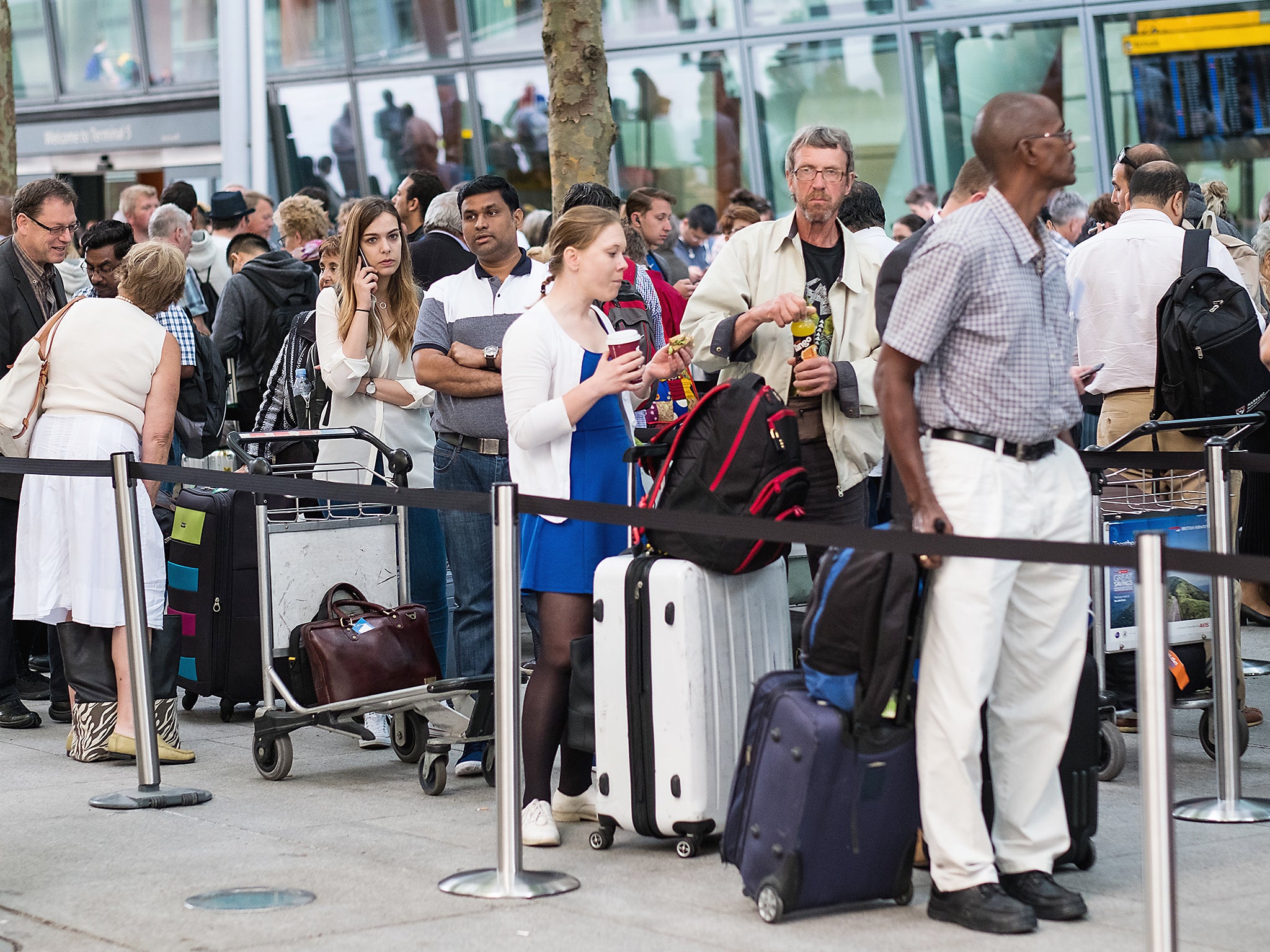Why British Airways should have had a back-up plan for Saturday's IT meltdown
An airline ticket is a pretty flimsy promise – just an aspiration to get you from A to B. Unlike BA on Saturday, you should always have your own plan B

At the moment BA’s computer system went on the blink last Saturday, I was about to experience a few outages of my own.
I had touched down at Almaty airport, in the extreme south-east of Kazakhstan, at 4am, and set off east towards the Chinese border.
Kazakhstan is the world’s ninth-largest nation. But it has a very thin population (numerically, if not always physically), so public transport is commensurately sparse.
For the long journey east from Almaty, I squeezed into a shared taxi along with five other non-thin people for the first 80 miles. The vehicle lurched its overpopulated way through landscapes that quickly slid from green and pleasant to parched and barren.
Along with the vegetation, the size of the communities dwindled. For the next 80 miles, the only way to travel was by the Kazakh version of hitch-hiking. You stand by the side of the road, not with your thumb raised (which, I dare say, is some unspeakably rude gesture) but with an arm patting downwards towards the pot-holed asphalt. Drivers understand this is an invitation to stop and negotiate a price for a lift. They did and I did.

By early afternoon, I was drinking tea in the small town of Shozhny, in a tongue of territory flanked on two sides by China and on a third by Kyrgyzstan. Then I took a call on my mobile phone, which was on that all-too-familiar intermittent frontier of reception.
Over a crackly line, the team at The Independent office in London described problems at Heathrow and Gatwick. After more calls it became clear that tens of thousands of British Airways passengers at both airports were enduring delays and confusion followed by abrupt cancellation.
I wrote a background story about why 21st-century airlines are so dependent on IT.

Journalists rely upon data communication, too. By the time I had finished, the signal had deteriorated. It reached the point where I could contact my colleagues only sporadically by text message: not an ideal way to file a 600-word article. So I found a cooperative local, texted the office asking to be called on his number, and spent 20 minutes dictating the copy to Bill – an intern who became painfully aware of the olden days of reporting.
Meanwhile at Heathrow, Gatwick and 100 more airports around the world, tens of thousands of passengers became painfully aware of the olden days of manual processing. Some flights got away, but without luggage. Soon British Airways abandoned its flying programme for the rest of the day. Cancellations and delays rumbled on through the bank holiday weekend.
A power surge, we are told, was responsible for the global shutdown of the IT system for one of the biggest airlines in Europe.
My knowledge of the principles of information systems is sketchy. But in the unlikely event I were asked to design one for an airline, it would start with redundancy: building in plenty of resilience. That means having a standby power plant comprising obsessively maintained industrial-grade batteries and generators, plus at least one entire auxiliary IT system in a different part of the world which mirrors every byte of the principal system – and to which the airline can switch in a nanosecond.
To reduce the risk of my own imminent redundancy, it’s useful to have a plan B; in this case, borrow a phone and annoy an intern. (If pushed I could have gone to plan C: grab a ride back towards Almaty until I reconnected with a mobile phone signal.) But last Saturday, BA’s apparent lack of a plan B left more than 100,000 passengers somewhere they did not want to be.
British Airways has some explaining to do: not just to the passengers messed around at the weekend, but also to the many prospective travellers who are unwilling to commit to a future flight without reassurance that it won’t happen to then.
We know the effects of a lack of back-up; now we need to understand the cause.
Meanwhile, passengers must remember that an airline ticket constitutes a flimsy promise: merely an aspiration to get you from A to B. Unlike BA on Saturday, you should always have your own plan B.
Join our commenting forum
Join thought-provoking conversations, follow other Independent readers and see their replies
Comments
Bookmark popover
Removed from bookmarks